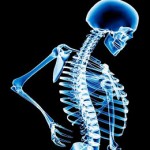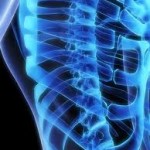
A new study by researchers at the University of Wisconsin shows that high-protein diets can rob your body of calcium, even if you get plenty in your system. In fact, the study further shows that vegetables are a better source of calcium than cow milk because it doesn’t have the same protein that would absorb the calcium that your bones should be getting.
The report specifically focused on the differences in bone density in vegetarians and omnivores and found, perhaps surprisingly, a higher bone density among the vegetarians. Dr. Neil Nedley claims this is further scientific evidence that shows a higher risk of osteoperosis and loss of bone density among people with high meat diets. Past studies have also shown that people who consume too much protein were likely to have the excess protein “leeching” calcium from the bones despite meeting the daily minimum calcium intake.
There are multiple other reasons that meat-heavy diets can lead to weaker bones. Calcium is required to simply neutralize the acids found in meat. Sulfur, which is found in high concentrations in meat, also prevents your body from properly absorbing calcium. High fat content which is found in meat also combines with calcium and is eliminated from the body rather than absorbing the calcium alone.
Researchers cited vegetables as a healthier source of dietary calcium than any animal product. Among the top protein sources are soybeans, greens, lentils, kale, turnip greens, hazelnuts, figs, and leafy greens that also have other beneficial properties like helping you prevent cancer. It is also important for meat eaters to consider adding a calcium daily supplement to your diet to increase your calcium levels and prevent your proteins from making you calcium-deficient.










